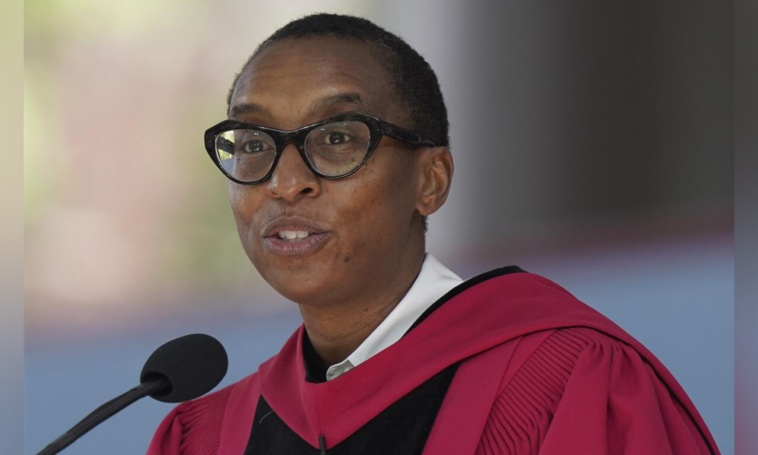Harvard University President Claudine Gay resigned Tuesday after facing plagiarism charges and strong criticism for her congressional hearing testimony on campus antisemitism. Gay becomes the second Ivy League president to quit under congressional inquiry after Liz Magill, president of Penn, resigned in early December.
Gay, who became Harvard’s first Black president months earlier, wrote to the community about her retirement. After a congressional hearing in which she hesitated to say whether campus demands for Jewish annihilation would violate the school’s behavior policy, her scandal escalated.
“It has been distressing to have doubt cast on my commitments to confronting hate and to upholding scholarly rigor — two bedrock values that are fundamental to who I am.” Former Harvard President Claudine Gay
Conservative activists accused Gay of plagiarism in her 1997 doctoral work, intensifying the investigation. Harvard Corporation, the university’s governing board, first supported Gay, conceding “a few instances of inadequate citation” but finding no scientific wrongdoing.
The situation changed when the Harvard Corporation found two more occurrences of “duplicative language without appropriate attribution.” Gay had to amend and request dissertation edits.
Conservatives who highlighted Gay’s plagiarism praised his departure. Conservative leader Christopher Rufo expressed satisfaction, citing antisemitism, plagiarism, and critic response. However, Gay’s resignation raised questions about racial animus and Black leadership.
Gay wrote, “it has become clear that it is in the best interests of Harvard for me to resign.” She expressed doubts about her commitments to fighting bigotry and supporting intellectual rigor. She reminded the faculty of the community’s unique challenges.
The resignation was praised and criticized. Supporters criticized an attack on a powerful Black woman. Award-winning novelist Ibram X. Kendi and Rev. Al Sharpton called Gay’s resignation pressure a threat to diversity, equity, and inclusion.
Rep. Virginia Foxx, Education and Workforce Committee Chair, remarked, “Postsecondary education is in a tailspin.” MIT’s Sally Kornbluth and Penn’s Liz Magill were attacked for their congressional testimony responses to campus antisemitism questions.
Federal civil rights investigations and calls to examine Harvard and other universities’ rules and disciplinary procedures stem from Gay’s tenure controversy.
Gay’s departure comes amid Ivy League turmoil over antisemitism charges. The House Committee on Education and the Workforce investigated Harvard, MIT, and Penn’s rules and disciplinary procedures. The leaders’ committee participation raised questions about college calls for Jewish annihilation.
The Harvard conflict was further exacerbated by Rabbi David Wolpe’s departure from Gay’s new antisemitism committee. Wolpe cited poor testimony and campus happenings for his judgment.
As academics grapple with these difficulties, the House committee’s probe will illuminate postsecondary education issues. Two Ivy League presidents resigned within a month, highlighting the crisis.
Harvard needs a new leader who can negotiate campus politics, fight antisemitism, and preserve diversity, equity, and inclusion. Gay’s tenure debate highlights political activism’s growing power, university leaders’ challenges, and the necessity for honest and effective governance.
As the investigation continues and the academic community grapples with these events, the broader effects on higher education regulations, leadership responsibility, and the delicate balance between free speech and campus conduct are unknown. The attention on these famous institutions calls for a deeper look at present academic difficulties.



One Comment
Leave a ReplyOne Ping
Pingback:Former Harvard Professor Defends Claudine Gay
Join the Community and Be a Part of the Conversation
You must be logged in or registered to post a comment.